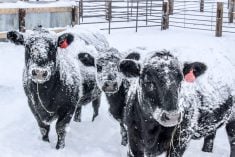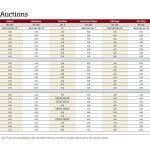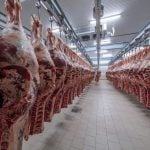Chicago | Reuters—Chicago wheat futures extended gains on Wednesday, at one point rising to a one-month high, amid support by a weaker dollar and short-covering encouraged by production concerns, market analysts said.
The strongest gains were seen in the Minneapolis and KC wheat markets, amid questions about crop damage in China and Russia, overall Northern Hemisphere harvest prospects and signs of increased global wheat demand, said Mike Zuzolo, president of Global Commodity Analytics.
Corn rose to a two-week high, following wheat, as traders kept a close watch on the progress of the U.S. crop set to be harvested this fall.
Read Also

U.S. grains: Wheat futures backpedal as US rains ease weather worries
Chicago | Reuters – U.S. wheat futures backpedaled from their highest levels in nearly two weeks on Thursday as rains…
One reason is the global corn stocks-to-use ratio for the upcoming marketing year is projected to be the tightest since severe drought across the Midwest ravaged fields in 2012, which sent grain prices soaring, market analysts said.
Soybeans rose to a nearly one-week high, supported by fears that heavy rains may have damaged soy crops in Argentina – the largest exporter of soymeal.
“Funds are in a short-covering mindset right now,” Zuzolo said.
The Chicago Board of Trade most-active wheat contract Wv1settled up 3-1/4 cents at $5.49-1/4 a bushel, after earlier reaching $5.56-1/4, its highest since April 21.
The contract had rallied 3.2 per cent on Tuesday as an unexpected decline in U.S. wheat crop ratings and reports of adverse weather in China and Russia triggered short-covering by investors, after prices hit a five-year low last week.
CBOT soybeans Sv1 ended up 9-3/4 cents at $10.62-3/4 a bushel, and corn Cv1 settled 6-1/2 cents higher at $4.61 a bushel.
Grain and oilseed futures gained support from the U.S. dollar’s =USD weakness, after cautious remarks about the U.S. economy by Federal Reserve officials. A weaker dollar can make U.S. supplies cheaper in export markets.
—Additional reporting by Karl Plume in Chicago, Gus Trompiz in Paris and Peter Hobson in Canberra.















